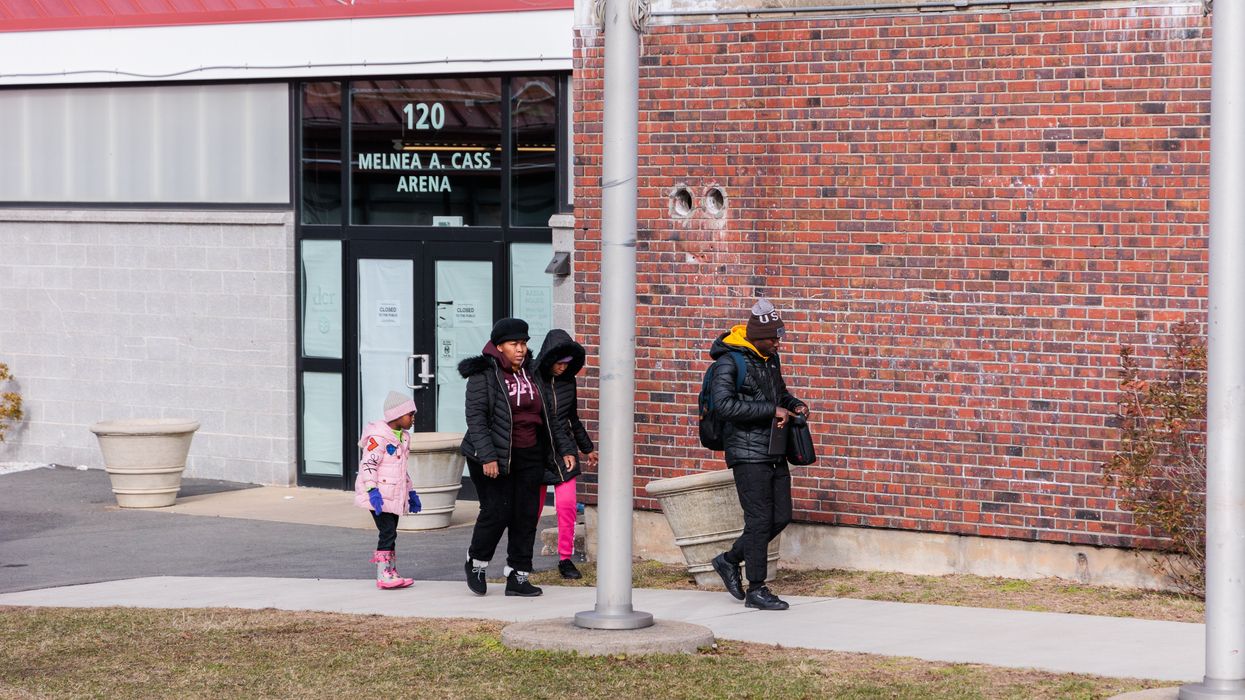Sipili is director of lived experience and innovation at Destination Home and a public voices fellow with The OpEd Project.
Newly released federal data reveals an intensifying homelessness crisis impacting families across America. The Department of Housing and Urban Development's 2023 Annual Homeless Assessment Report found a staggering 15.5 percent increase in the number of families with children experiencing homelessness compared to 2022, reversing the downward trend in family homelessness that had been occurring since 2012. The statistics represent a setback in the efforts to address this issue affecting vulnerable parents and children.
The shocking numbers barely scratch the surface of the unimaginable suffering families endure.
I know this firsthand, having made the agonizing choice to have my three young children stay with their father when I became homeless, to shield them from the instability and trauma I was facing. The exceptional resilience required, as well as the basic human dignity being relentlessly stripped away as entire families get swallowed up by life on the streets, cannot be captured by data alone.
To turn things around, we must look beyond the numbers and bear witness to their excruciating realities.
The factors driving families into homelessness are as diverse as the families themselves. For some, it's a vicious cycle starting with job loss, made exponentially worse by a drought of affordable housing and a laughably inadequate safety net.
This aligns with 2022 findings from a study of family homelessness in Ireland, Sweden and the United Kingdom that showed multiple structural and individual reasons contribute to family homelessness. These include "limited supply of social housing, inadequate welfare systems, parental mental health, domestic violence and relationship breakdown."
For others, it's the catastrophic fallout from a medical emergency gone financially haywire. A recent survey by Bankrate found that a staggering 56 percent of Americans could not afford a $1,000 unexpected emergency expense. This widespread financial instability leaves many families one crisis away from homelessness.
For those already marginalized by systemic racism, the risk is exponentially higher — a grim truth underscored by the 2022 EU study warning that "children experiencing homelessness fall at the high end of the continuum of poverty-related risk and adversity."
Regardless of the circumstances, the human costs for these families are enormous. Homelessness disrupts every aspect of a child's world, from their social networks to their sense of stability and safety, research shows.
Children get ripped away from their schools, friends and daily routines, suffering deep trauma by getting crammed into crowded shelters or scary living conditions, according to 2023 research in the United States. Parents make unimaginable sacrifices and carry tremendous guilt as they ricochet from temporary accommodations to the streets.
The deterioration of physical and mental health as the realities of exposure and instability set in. And the quiet moments of loss as family milestones and cherished traditions are put on hold without a place to call home.
As a nation, there is an ethical imperative to ensure every family has a safe, stable home. This is about restoring fundamental human rights that allow communities to thrive, not handouts or government overreach.
By putting the real-life stories and perspectives of impacted families front and center, and boldly reimagining an equitable, compassionate, evidence-based housing approach, it is possible to reverse this rising tide of family homelessness while upholding human dignity.
Crucially, this will take a massive investment in homelessness prevention — rental assistance, legal aid, supportive services to stabilize families before they get displaced.
For those who do experience homelessness, it means reorienting crisis responses away from shelters and toward rapidly rehousing families.
This requires advocates, policymakers, service providers, and impacted families to join together in demanding a robust federal response with increased funding for affordable housing solutions, expanded rental assistance programs, stronger eviction protections, and a re-envisioned crisis response system prioritizing preventing displacement and rapidly rehousing families.
Rather than cycling families through shelters, it's critical to seek out their stories, get involved with local assistance efforts and hold elected leaders accountable until this tide is finally turned.
The intensifying influx can serve as a moral calling, reminding everyone that a society's true character is measured not by wealth or power, but by how it treats the most vulnerable.
Putting a human face to this crisis can spark the urgency and political will required to ensure family homelessness is brief and no child endures it.



















